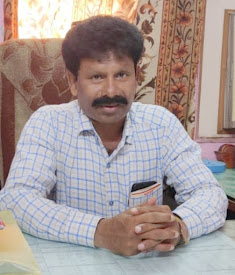Direct Tax Code gets nod Paving the way for radical reform and simplification in the Direct Tax system the Union Cabinet on Thursday approved the much-talked about Direct Tax Code (DTC) Bill proposing to provide more Income Tax relief to salaried class.
The DTC Bill, which seeks to replace the archaic Income Tax Act, 1961, proposes to raise the Income Tax exemption limit from existing Rs 1.6 lakh to Rs Two lakh, highly placed sources said. The Income Tax exemption limit for senior citizens is proposed to be raised to Rs 2.5 lakh.
Under the moderate tax slab suggested in the DTC Bill the government proposes tax rate of
10 per cent for income between Rs 2 lakh and Rs 5 lakh,
20 per cent for income between Rs 5 lakh -
Rs 10 lakh and 30 per cent for income over Rs 10 lakh.
Currently the Income Tax rate is 10 per cent on income above Rs 1.6 lakh and upto Rs 5 lakh, 20 per cent on income above Rs 5 lakh and upto Rs 8 lakh and 30 per cent on income above Rs 8 lakh.
The first draft of the DTC bill had suggested
10 per cent tax on income between Rs 1.60 lakh and Rs 10 lakh,
20 per cent on income between Rs 10 and Rs 25 lakh and
30 per cent beyond that.
The DTC Bill proposes to levy Corporate Tax at 30 per cent and there will be no cess and surcharge on it, sources said. The DTC Bill will be introduced in the ongoing Monsoon session of Parliament.
The Cabinet at its hour-long meeting chaired by the Prime Minister discussed at length various provisions of the DTC Bill, which will seek to bring about radical reforms and simplification in direct tax structure including the Income Tax rates and exemptions.
The overall thrust of the DTC Bill will be on bringing about simplification of direct tax system including personal Income Tax and Corporate Tax with “an in-built bias” in favour of moderation of tax rates, sources close to the preparation of draft legislation said.
Provisions of the DTC Bill stipulating the tax rates in direct tax front including Income tax and Corporate Tax will come into effect once it the legislation is approved by both houses of Parliament.
The government plans to implement various provisions of the DTC Bill with effect from April One 2011.
It is learnt that the government is likely to introduce the DTC Bill either tomorrow or next Monday in both houses of Parliament. After its introduction the draft DTC will be sent to Select Committee of both houses for scrutiny.
After examining the recommendations of the Select Committee the government will move the DTC Bill for approval of Parliament in the Winter Session.
Later, talking to newspersons, the Finance Minister Pranab Mukherjee said, “The whole objective is that a plethora of exemptions will be limited. (Income) tax slabs will be three. Rate of taxes will be taken in the schedule so that they need not be changed every year,” he said. The Finance Ministry submitted the draft DTC Bill for consideration of the Cabinet after examining responses from various stake holders including trade, industry and corporate sector.
Source: Deccan Herald
CONDOLENCE MESSAGE
1 day ago




Hello,
ReplyDeletevery good site you have created. I enjoyed reading this posting. I did want to publish a comment to tell you that the design of this site is very aesthetically delightful.
Massachusetts Income Tax Relief